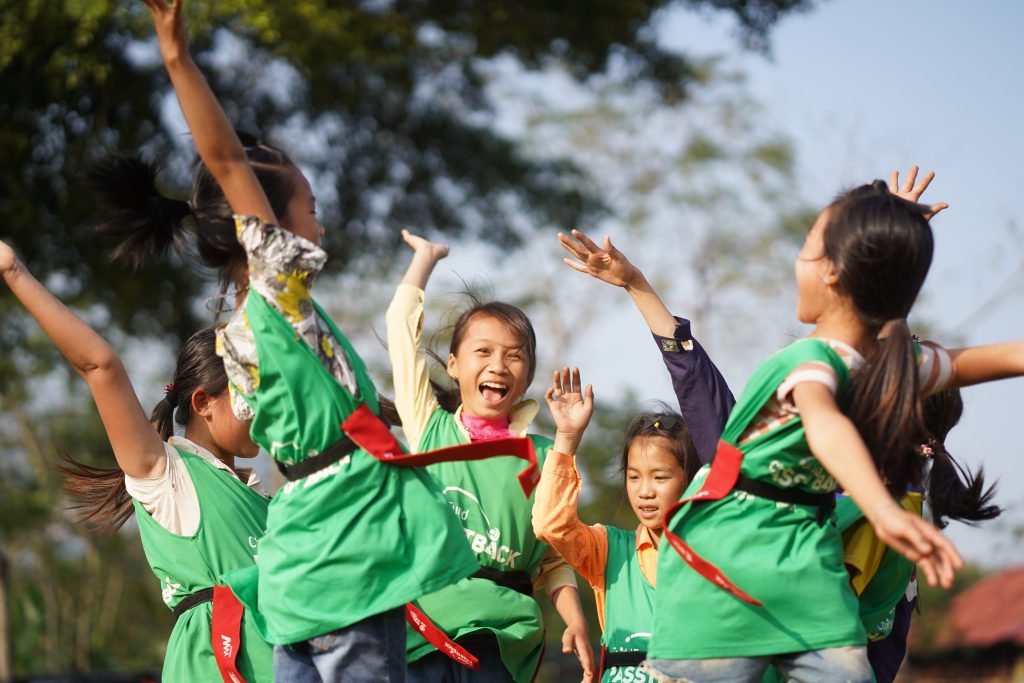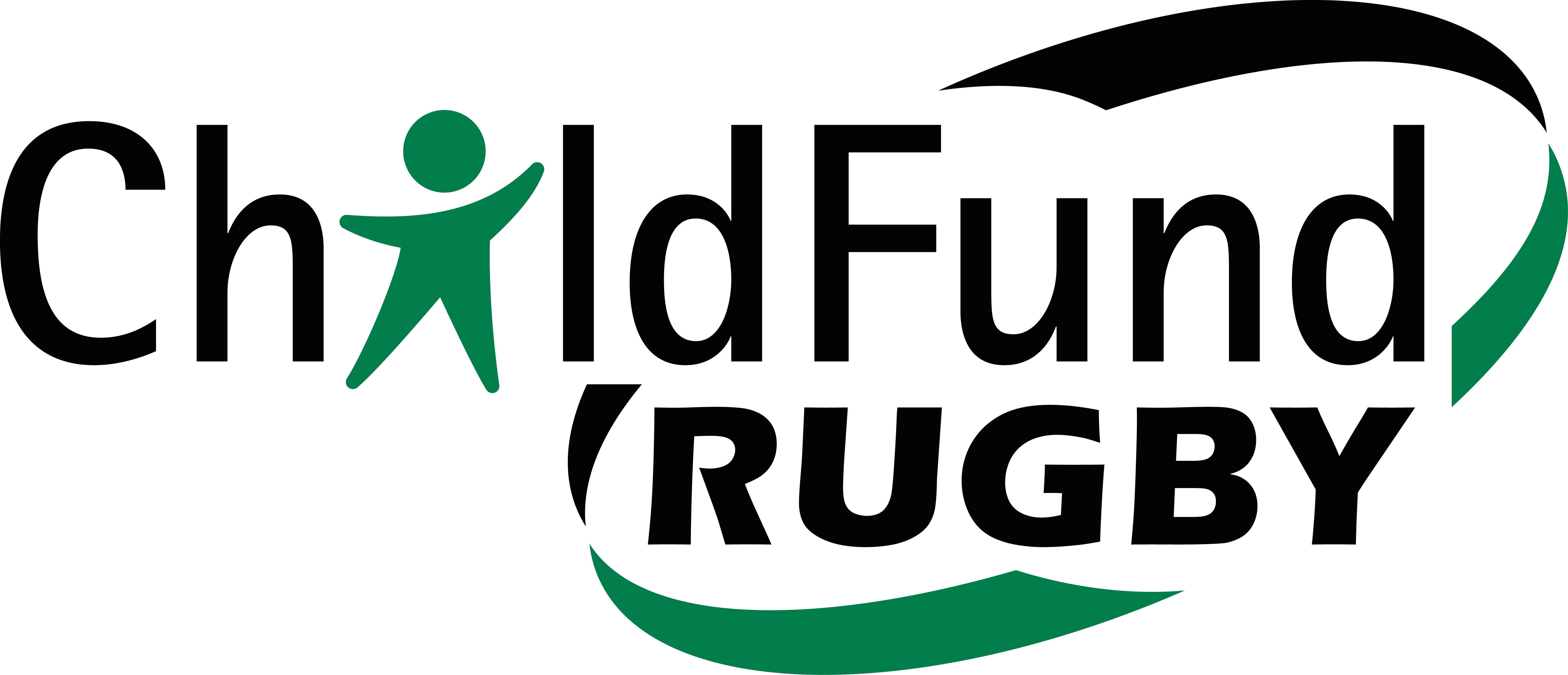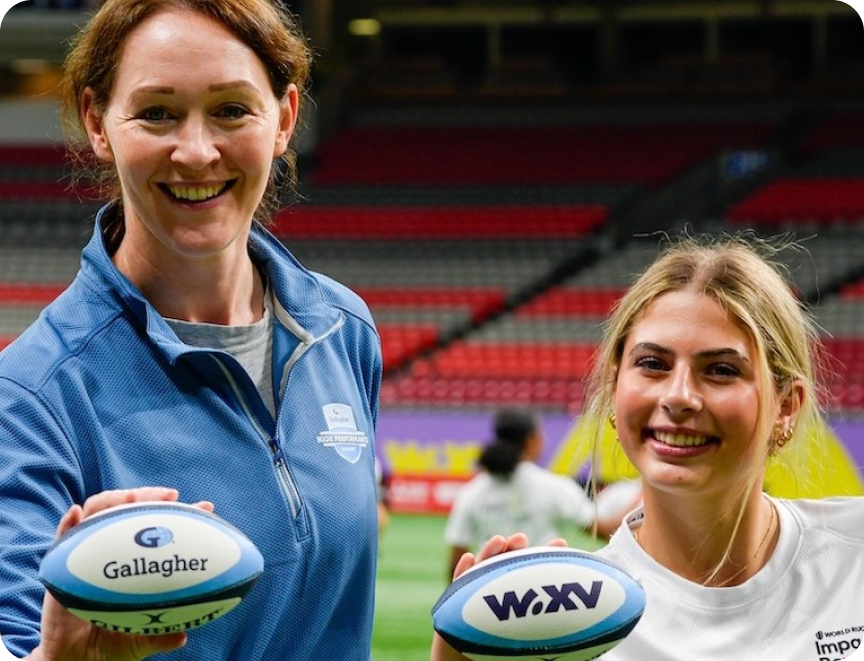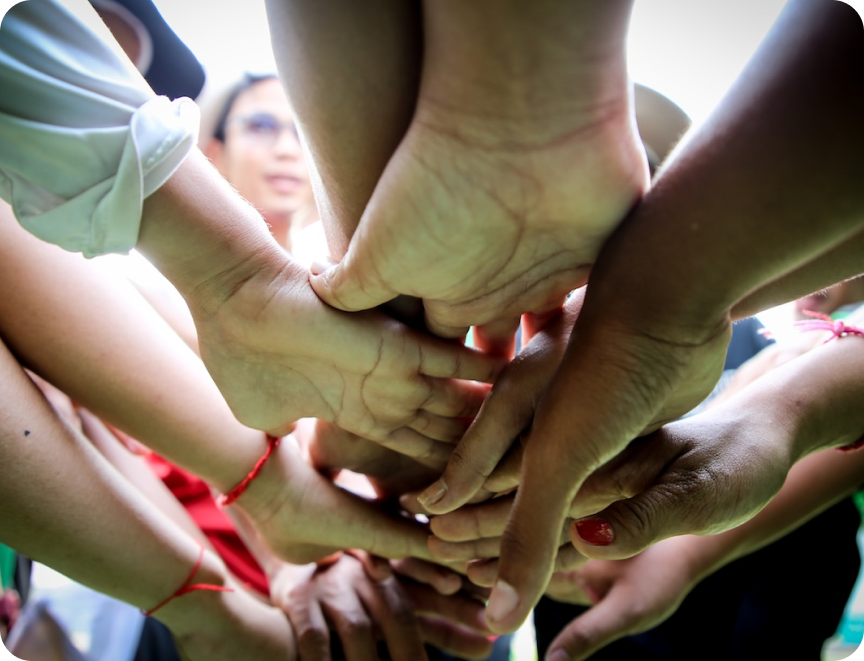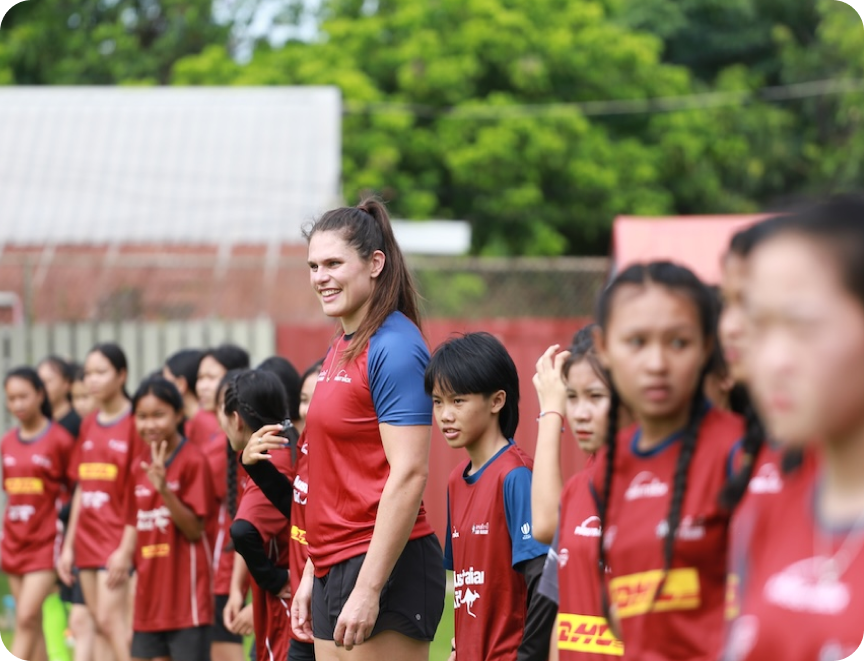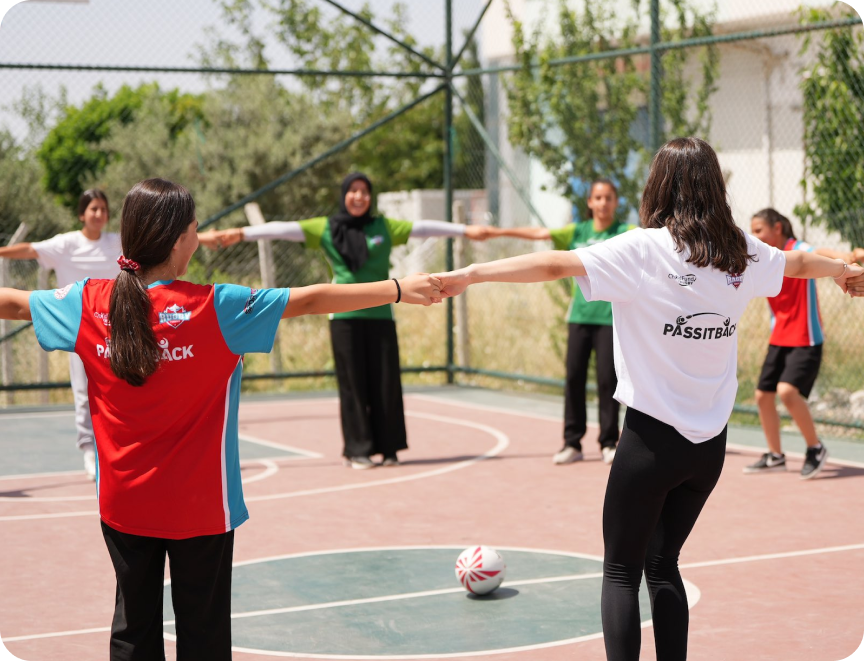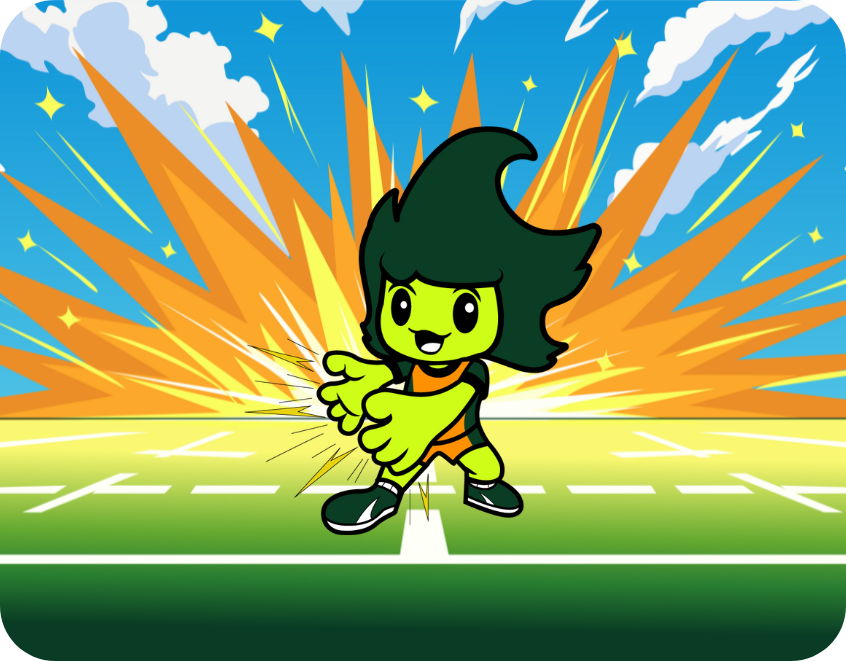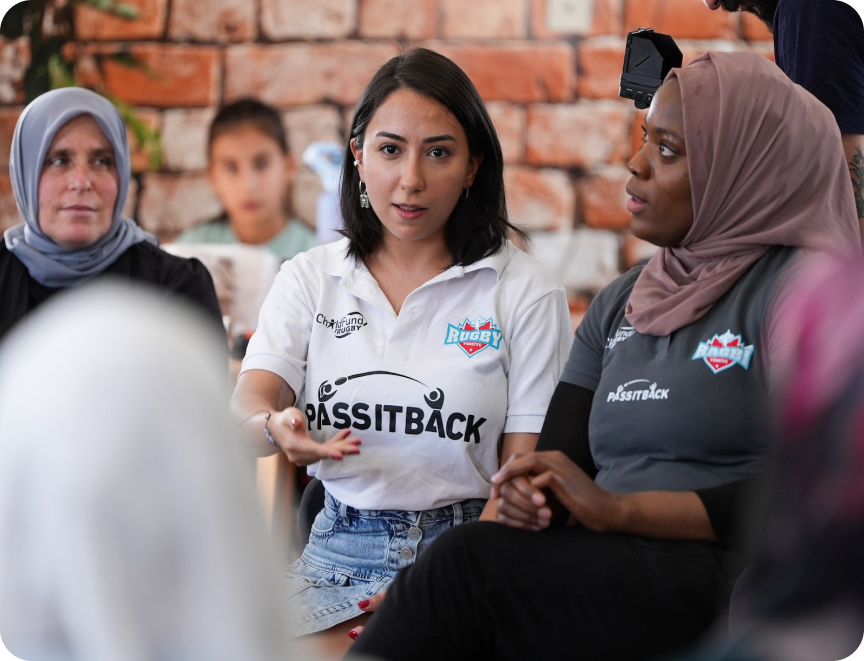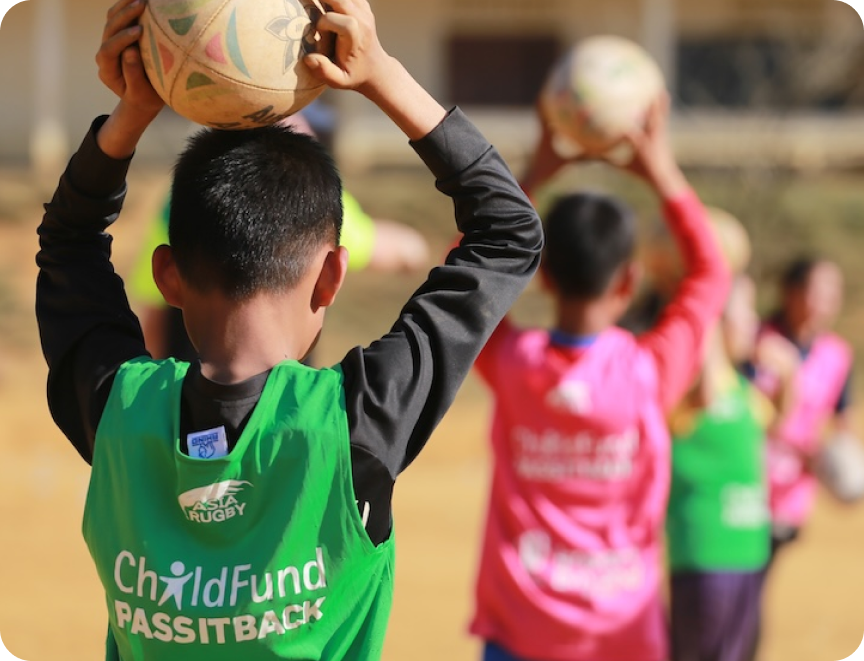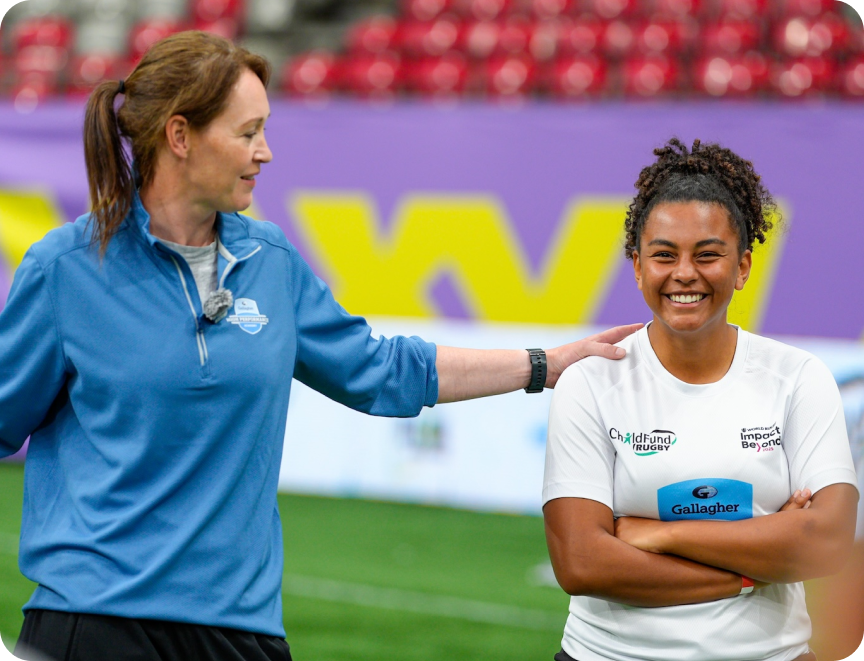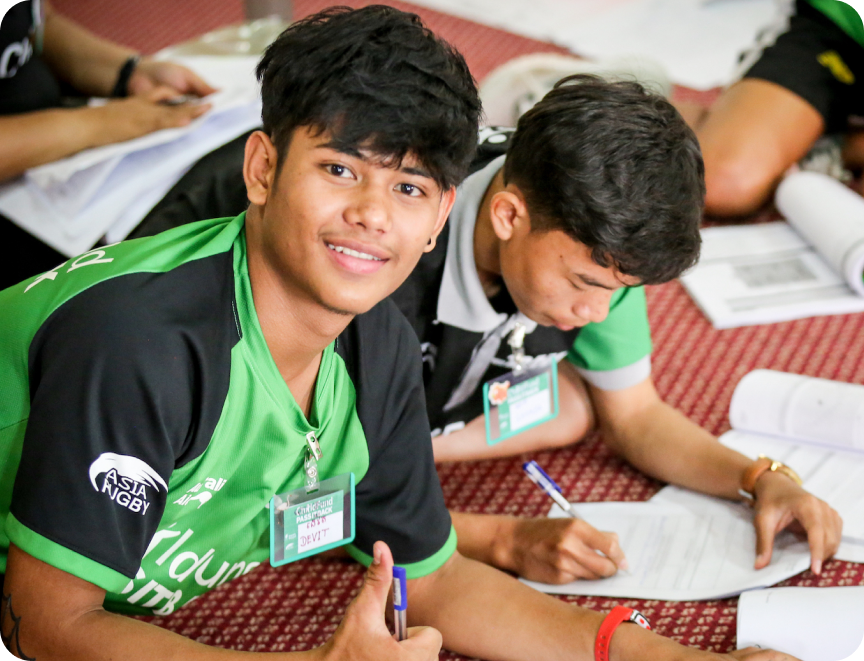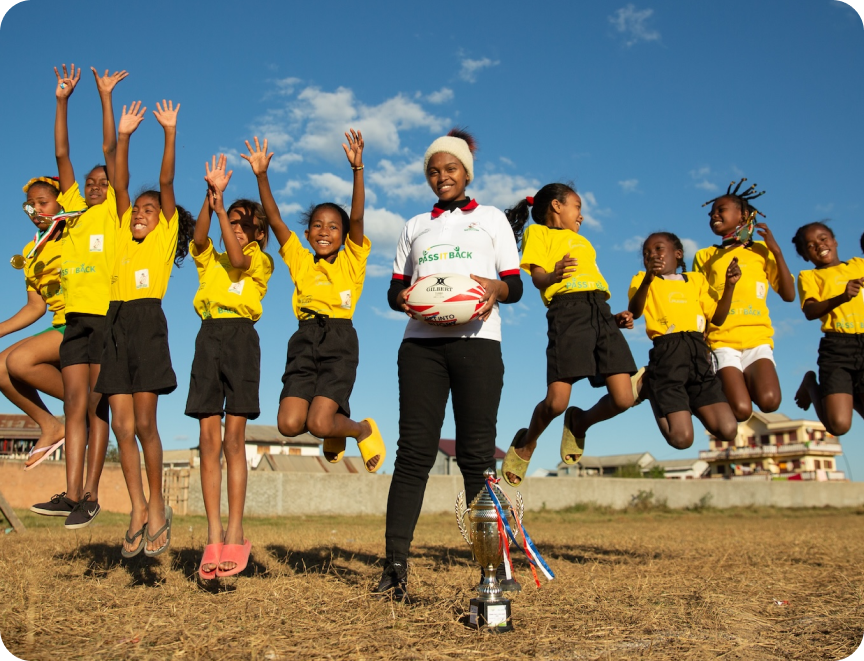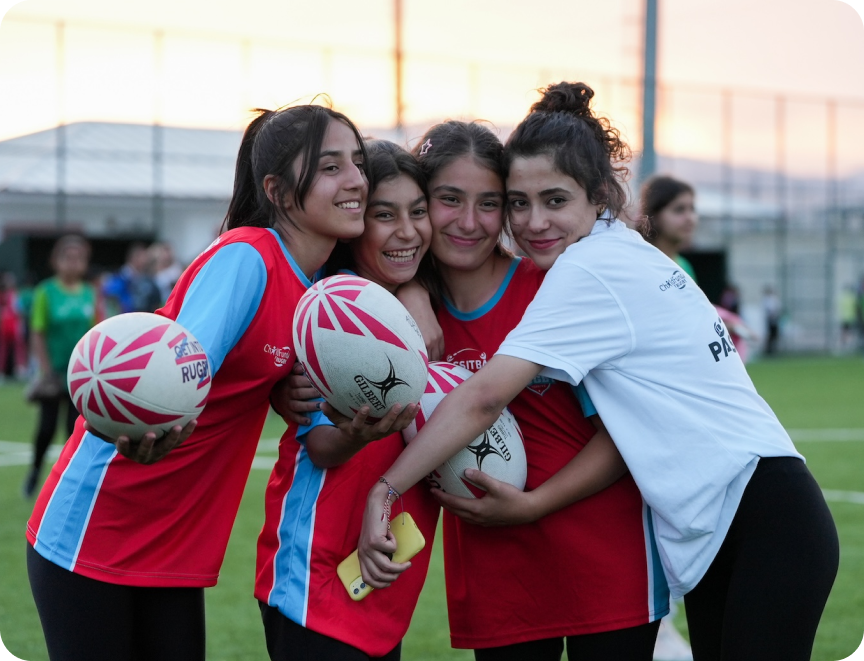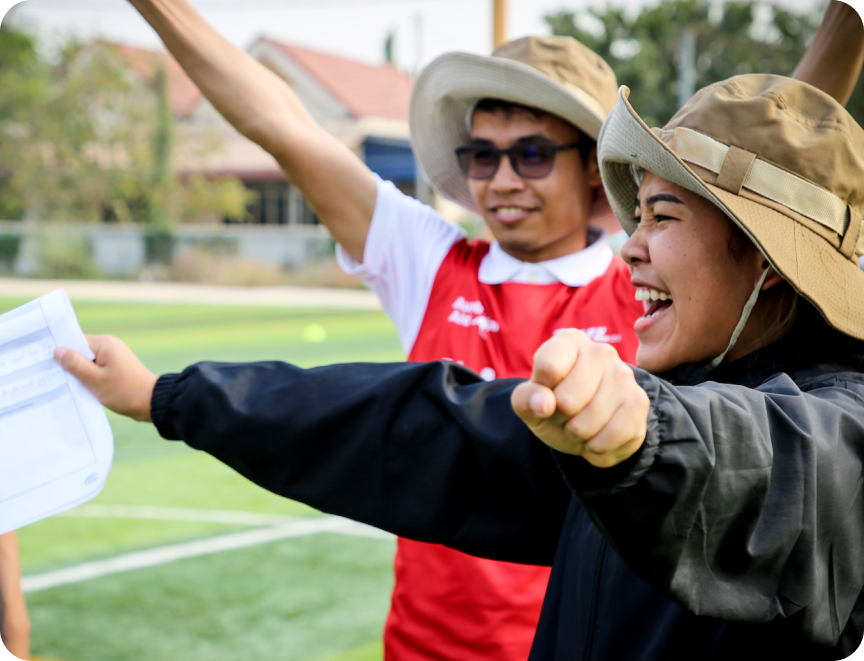Meet Mai, a young and eager ChildFund Pass It Back player from a small village in Tan Lac, a remote northern district of Vietnam.
Mai is 13 years old and lives with her grandparents. Her parents, like many other working young adults in the area, are employed far away.
Mai is a player for team Forest Flowers and has been playing tag rugby for almost two years now.
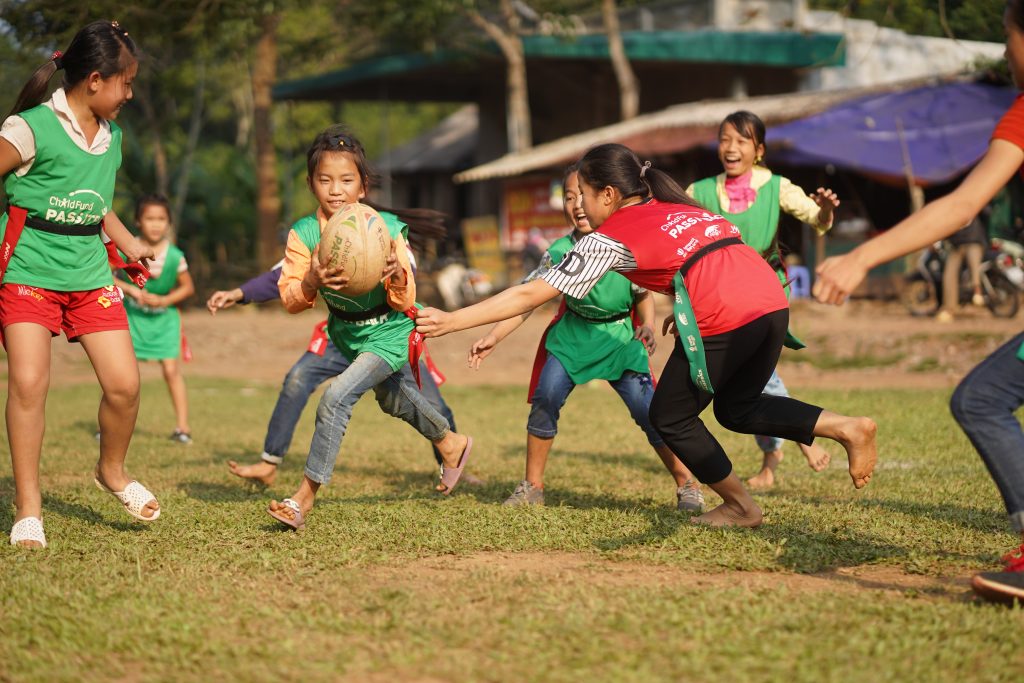
Since joining ChildFund Pass It Back, Mai has experienced significant changes in terms of her personal development and in her daily life. She has made new friends and her confidence has increased. Her grandmother says: “Mai is much more energetic than she used to be. Now when she is at home, she is so eager to learn and often gets her books out to study. Every day after having her meal, she volunteers to wash the dishes. She now also takes better care of herself.
“Her personality has changed also. I can see that Mai is much happier since she joined the program. She enjoys going to training and riding her bike to the pitch. On some days she even rides down the village road to see if any of her friends want to play rugby. After the sessions, she seems to be in a very good mood.”
These may not seem like but changes, but they have transformed Mai’s life.
Her grandmother explains: “In the past, Mai was often lonely. She had no friends. At school, she often sat alone during breaks because she could not hear what her friends were talking about – Mai has a hearing impairment.
“At that time, we were so sorry for her, and we did not know what to do. We were so sad when she could not get involved like the other children.
“Before she joined the program, we thought that it would be impossible for her to play sport. When she was asked by a ChildFund Pass It Back coach to take part, we let her go but did not expect that she would be able to learn anything. We had never seen a child who has disability in our community participate in any kind of team activity.”
However, since Mai joined the program, her coaches and teammates have provided so much support. When she goes to the pitch, she sits close to the coaches during the discussion so that she can hear what they are saying. Her teammates take great care of her, and children visit her house more often, often collecting her as they go to school.
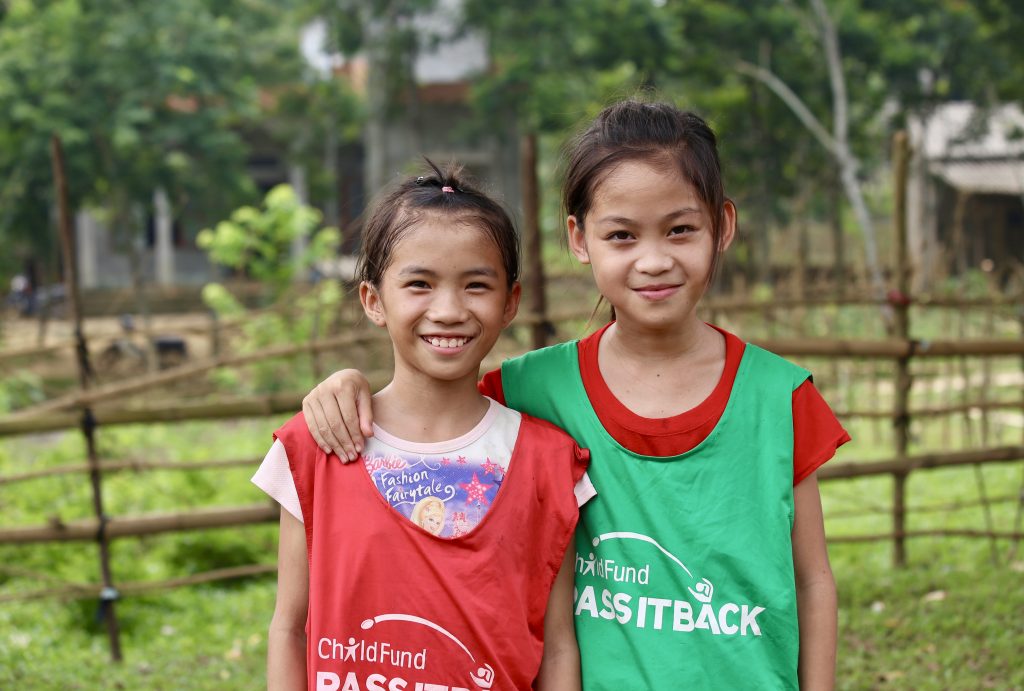
Mai (left) with one of her teammates at a training
Mai’s coach, Coach Thuy, says: “When Mai joined in 2018, she often showed up to the pitch but sat at a distance from the rest and did not interact with anyone. She learned slower than her teammates and often dropped the ball, which would make her even more frustrated.
“Initially, some of the players did not want to let Mai play in their team. We spent time talking to the team about this. We helped the players understand the importance of inclusion. Since then, they have been respectful and now consider Mai as a member of the team. Thanks to their help, Mai has become much more confident.”
In November 2018, Mai got her first opportunity to play in a competition. At first, she was so shy and nervous so that she didn’t join her team on the field. One of her teammates got Mai a bib and set of tags, helped her put the bib on, and then signalled for her to join the game.
As she stepped onto the field, Mai was excited. This was her first ever game at her first competition. The coaches and other players treated her respectfully and gave her lots of encouragement.
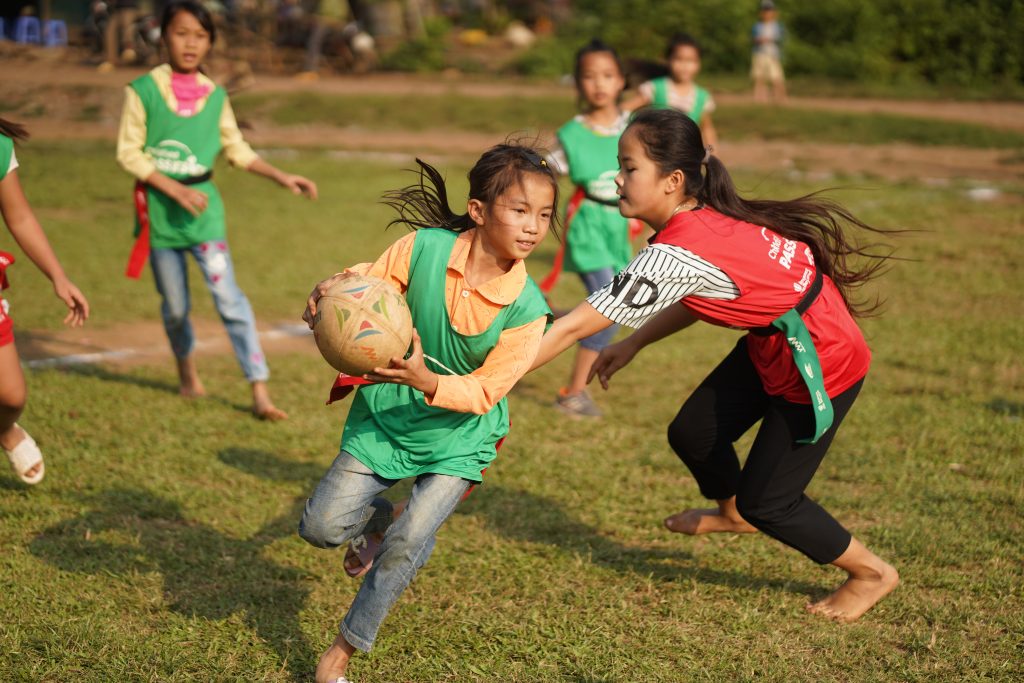
Mai (with the rugby ball) at her first ever competition
For Mai, this was an important turning point, and she has since developed a greater sense of belonging, self-confidence, and self-esteem.
“I’m so happy that I could be part of the competition. I had thought that the competition is only for good and skillful players and not for me.”
At the end-of-season tournament a year after her first game, Mai was actively playing in matches and showing so much enthusiasm.
Coach Thuy adds: “Before, Mai needed lots of support to start the game or activity, but now she picks up her equipment to get ready for the games on her own, just like her peers.”
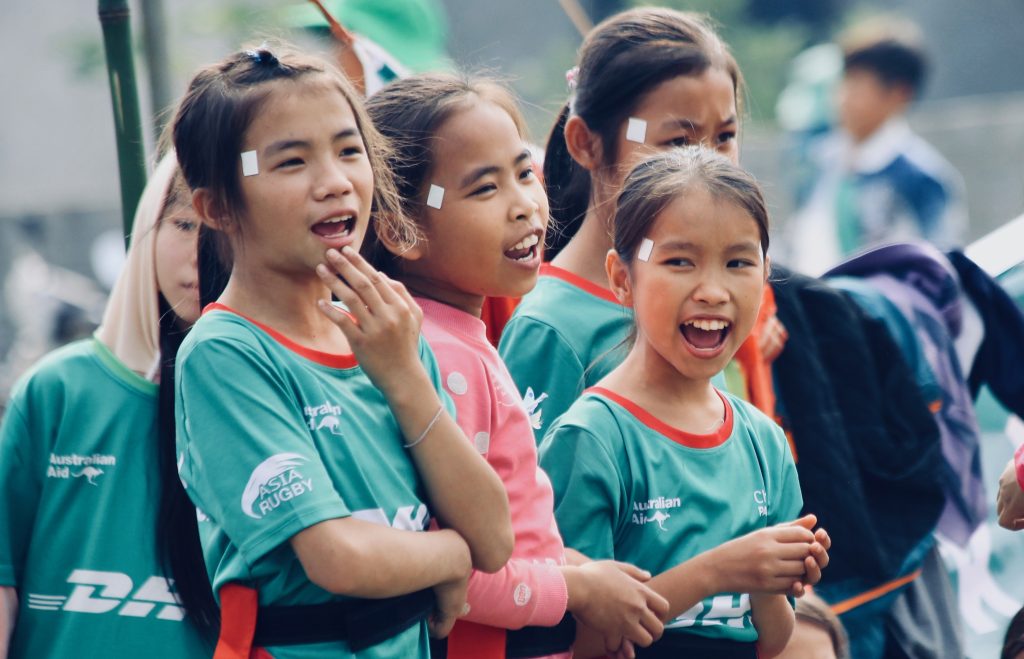
Mai (far left) cheering with her friends at another competition
Children living with disability often experience significant challenges as a result of discrimination that denies them their right to take an active role in their community.
But ChildFund Pass It Back coaches are setting a new example in communities. As they actively find and welcome players like Mai, they are role modelling inclusive behaviours for others to follow. Through their actions, they demonstrate that all children and youth, including those living with disability, should have their rights recognised and upheld.
Young girls like Mai have the ability to enrich their own lives and make a valuable contribution to their communities. They just need an opportunity, and encouragement and respect along the way.
